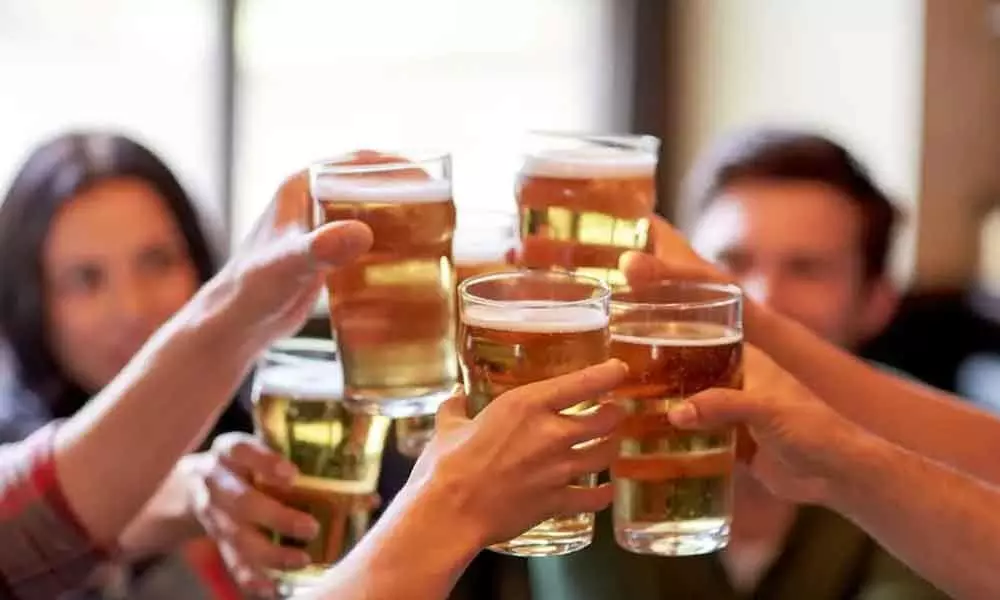Alcohol Abuses.. Why do Teenagers Drink?

Our research indicates that the average age a person first tries alcohol is now 13.3 percent.
Alcohol can have serious effects on developing brains and bodies, as well as leaving teenagers vulnerable to unsafe situations.
Drinking alcohol is seen as something teenagers are expected to do as part of growing up but starting to drink so young is more damaging than many teenagers realise.
Understanding how to talk to teenagers about alcohol can help you get to talk to them about the risks.
Teenage drinking statistics
The Health and Social Care Information Centre's 2014 report (2) documents the drinking habits of teenagers. Of the teenagers surveyed:
8% had drunk alcohol in the last week
22% of those who had drunk alcohol in the past week had drunk 15 units or more in that week
Therefore, Girls statistics were more likely to report having been drunk than boys (10%, compared with 7%) as per the data.
However, not all teenagers drink, the number of 11-15-year-olds who had tried alcohol (38%) was the lowest since the surveys began.
Despite this encouraging trend what's concerning is that there were still 13,725 under-18s admitted to hospital with alcohol-related problems between 2011/12 and 2013/14
Why do teenagers drink?
It's easy for adults to dismiss teen drinking as a straightforward act of youthful rebellion but the reasons teenagers start drinking can be complicated and varied.
Peer pressure can be a major factor in contributing to drinking for the first time as teenagers feel the pressure to keep up with their friends to fit in.
The feeling that every other teenager is drinking can be made worse by popular culture, as TV and films often show teenagers with alcohol. A recent study found that adolescents with the highest exposure to alcohol use in films were more likely to have tried alcohol compared with those least exposed and more likely to binge drink.
Teenagers may also drink to temporarily distract themselves from the pressures or worries of life. Puberty is a tough time and teenagers may wrongly think drinking is a way to cope.
Drinking affecting teenager's health
Teenagers can think they're invincible but drinking when too young can damage health and wellbeing of young people. Most noticeable are the short term effects, such as bad breath, bad skin and weight gain.
However, more damaging is the potential effect of drinking on the young brain. Teenage years are important time for brain development.
The 2009 Chief Medical Officer Reported concerns that heavy drinking at under twenty years old was associated with abnormalities in brain areas dealing with motivation, reasoning and interpersonal interactions. Subsequent research has shown that alcohol is indeed causing such changes in some young people.
Alcohol can also lower inhibitions which can make it more likely for teenagers to make risky like getting into fights or having unprotected sex.
How to talk to your teenager about
The best way to talk to your teenager about alcohol is to sit them down and have an open, honest talk. If possible, try and talk to them before you suspect they've started drinking.
As a defence teenager can say it's unfair that parents lecture them about drinking but drink alcohol themselves. You can agree that large amounts of alcohol are harmful to anyone, but also you can say that young people seem to be more vulnerable in some ways.
If your child expresses frustration at you drinking while telling them not to, this could be time to start cutting down your drinking (get tips on how to cut down drinking alcohol at home).
Make sure your teenager knows they can come to you with any problems. Let them know alcohol abuse may be a symptom of how they're feeling, and never a solution to a problem. There will be other ways of dealing with it.
We offer advice, tools and videos from Family Lives in our underage drinking support section.








